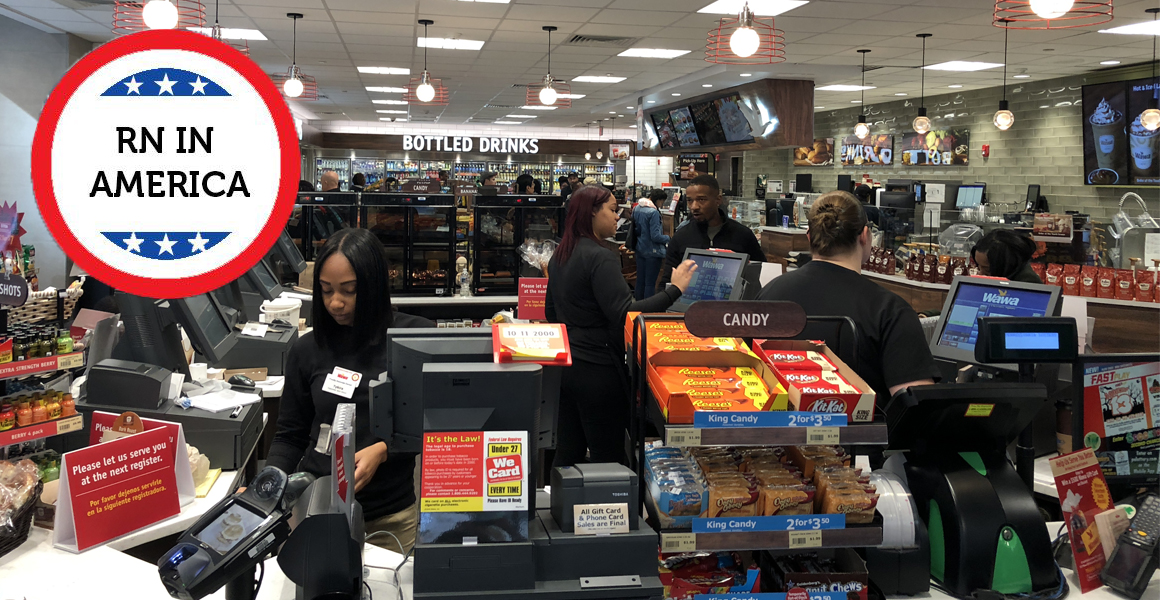With highways and fuel stations becoming increasingly competitive in the US, the pressure is on for stores to redefine their offer and compete in urban spaces. Wawa’s expansion into the centre of Philadelphia marked the first of these test locations for the business.
Wawa began life in 1803 as an iron foundry in New Jersey and, like many food retailers in America and the UK, its roots date back to the dairy industry. In the early 20th century, entrepreneur George Wood bought a processing plant in Wawa, a small area of Pennsylvania. The decline of the home delivery of milk in the 1960s spurred George’s grandson, Graham, to sell dairy products in a store called Wawa Food Market in 1964.
With its strapline of ‘fuelling lives, every day’, today Wawa employs more than 30,000 people in seven states. The company is 42% employee-owned, which encourages staff to drive customer service and loyalty. There are 800 stores in Wawa’s portfolio, with 500 of them selling fuel, and all of them now selling sandwiches, coffee, soups, sides and snacks, and its signature food item, the Hoagie ‒ a long, sub-style sandwich.
Inner-city stores swap the focus on fuel for cars for fuel for Philadelphia’s busy community. Tablets for made-to-order food line a counter where shoppers can see their orders being freshly prepared. One of the most popular fixtures in the store is an area that doesn’t make money on its own – the stand for coffee, sugar and syrups.
“We’ve devoted a huge amount of space to doing coffee right. It’s one of the most important parts of our offer, so we make sure we offer everything a coffee consumer could possibly need,” says Wawa Broad & Walnut store manager Brendan.
Focusing on food is a strategy that is working – its first city store’s sales exceeded expectations by more than 50% in its first year, in terms of volume and value.
One of the most impressive parts of Wawa’s city stores are their award-winning layouts. Tills are located at the front in a circle so staff can welcome shoppers on the way in and serve them on the way out. This also helps tackle an issue that will be familiar to many stores owners.
Most of Wawa’s stores are open 24 hours a day, but one of the big learning curves the company faced when expanding inside a city was the impact of crime on a store. It’s not just petty store theft and shoplifting; overnight staff faced several violent encounters with certain people within the city’s increasing homeless population, which led to the decision to close the store between 11pm and 5am. The result was a decrease in sales of more than 40%, but staff are safer and in a position where the company can rebuild the store’s business.
There are two Philadelphia police officers stationed in store at all times. “Their remit is solely to deal with violent crimes, not shoplifting. It makes our staff feel like they are more protected. Our training says to not engage anyone getting violent, but now our staff know that they won’t ever need to,” Brendan explains.
Wawa’s expansion hasn’t been without its challenges, but its survival and popularity prove that by creating a mission and delivering a vision, you can take your business to the next level.
Its core values are simple: value people, delight customers, embrace change, do the right thing, do things right, and have a passion for winning, and it is these that it can use to hold its staff to account and drive them, and therefore the business, further.
“We’re incredibly excited to see where we can take our store next. We’ve got a great team in place and the feedback from our customers makes me incredibly proud to be part of it,” Brendan says.






Comments
This article doesn't have any comments yet, be the first!